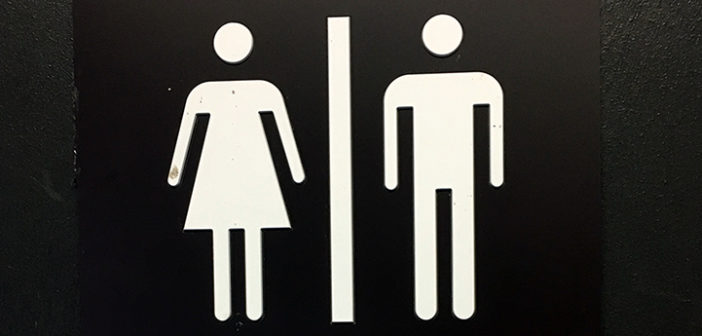When living in a country as bountiful as the United States, simple things can get taken for granted. Getting married, getting hired, holding jobs, and even going to the bathroom are not as easy for people of the LGBTQIA community as they are for others.
Acceptance of those who consider themselves to be apart of the community has become more widespread in recent years, but there are still areas to be explored. On June 25, 2015, the gay marriage was legalized everywhere in the United States, but almost immediately some states fought against the bill, instituting their own opposing laws.
In February of this year, North Carolina passed a law that directly affects people who consider themselves transgender and the bathrooms that they can use. The law, HB 2, states that transgender people can only use the bathrooms that correspond to the gender that they were assigned at birth.
Tommy Varela, a freshman at North Central College, considers himself a part of the LGBTQIA community as a gay man, and he can relate to the struggle that those members of the community go through. “The word ‘transgender’ is still fairly new to America in a mainstream way,” Varela said.
While Varela recognizes that transgender people, and in turn transgender rights, are coming into the cultural consciousness there is still work in his eyes to be done.
“Lately, these issues have been in the spotlight, which has been really great because people are being aware and trying to educate themselves on it,” Varela said. “But at the same time, because it was brought so quickly into our knowledge people haven’t had time to learn about it, they’re still afraid for reasons they shouldn’t be.”
The focus on gender assigned at birth is one of the biggest pushbacks against the bathroom bill from both members of the LGBTQIA community, and from people who consider themselves to be allies of the community.
Joceline Hernandez, a sophomore political science major, considers herself to be an ally and agrees with this. “I think in a lot of ways it’s reactionary to gay marriage being passed,” said Hernandez. “Some people are just looking for other ways to attack the LGBTQIA community.”
In an interview with Mic about bathroom laws, Vincent Villano of the National Center for Transgender Equality said that his foundation had “not heard of a single instance of a transgender person harassing a non-transgender person in a public restroom.”
“Those who claim otherwise have no evidence that this is true and use this notion to prey on the public’s stereotypes and fears about transgender people,” Villano said. Hernandez also sees in the base of the North Carolina bathroom bill a fear of some the unknown, of something they do not understand.
“People think that it’s going to be a completely gender-conforming man who puts on a dress to rape their daughters, and that’s their unfounded fear,” Hernandez said. “Keeping bathrooms gendered doesn’t make women any safer, it just makes transgender people less safe.”
Varela sees this same fear in people about the transgender community. “I think that fear comes from a place of not knowing,” Varela said. “There are stereotypes and stigmas around transgender people that aren’t true and that’s all the information that people have to go off of, rather than real facts.”
Jennie Smith-Paríolá, associate professor of anthropology, teaches gender and women’s studies at North Central College. Though there is controversy across the country about transgender people and the bathrooms they use, Smith-Paríolá is hopeful about the introduction of gender-neutral bathrooms on North Central’s campus.
“I do think gender-neutral bathrooms will be a reality on campus,” said Smith-Paríolá. “I also think they will be a reality throughout the country.”
Hernandez is slightly less optimistic in regards to the possibility of gender-neutral bathrooms becoming a reality on campus. “There are progressive schools and then there is North Central. They are not the same,” Hernandez said.
There are many discussions to be had in regards to LGBTQIA rights, and how the local and larger culture. “I know people on this campus who are gender-queer, and people who are transgender, and to allow them to feel comfortable on this campus should be our number-one goal,” Varela said.
From marriage to bathrooms, the dialogue is nowhere close to ending.

